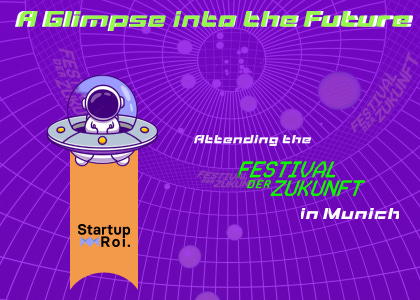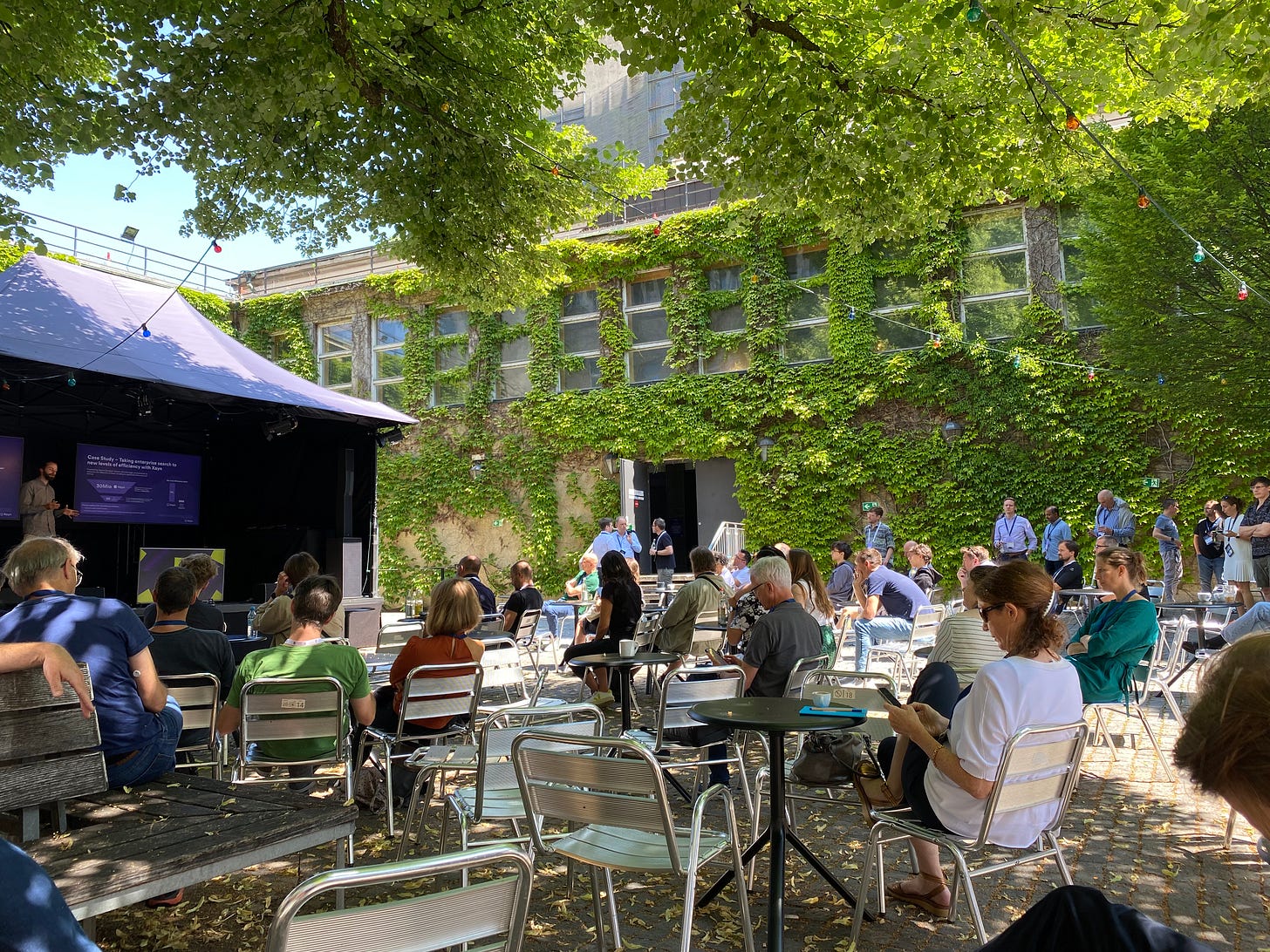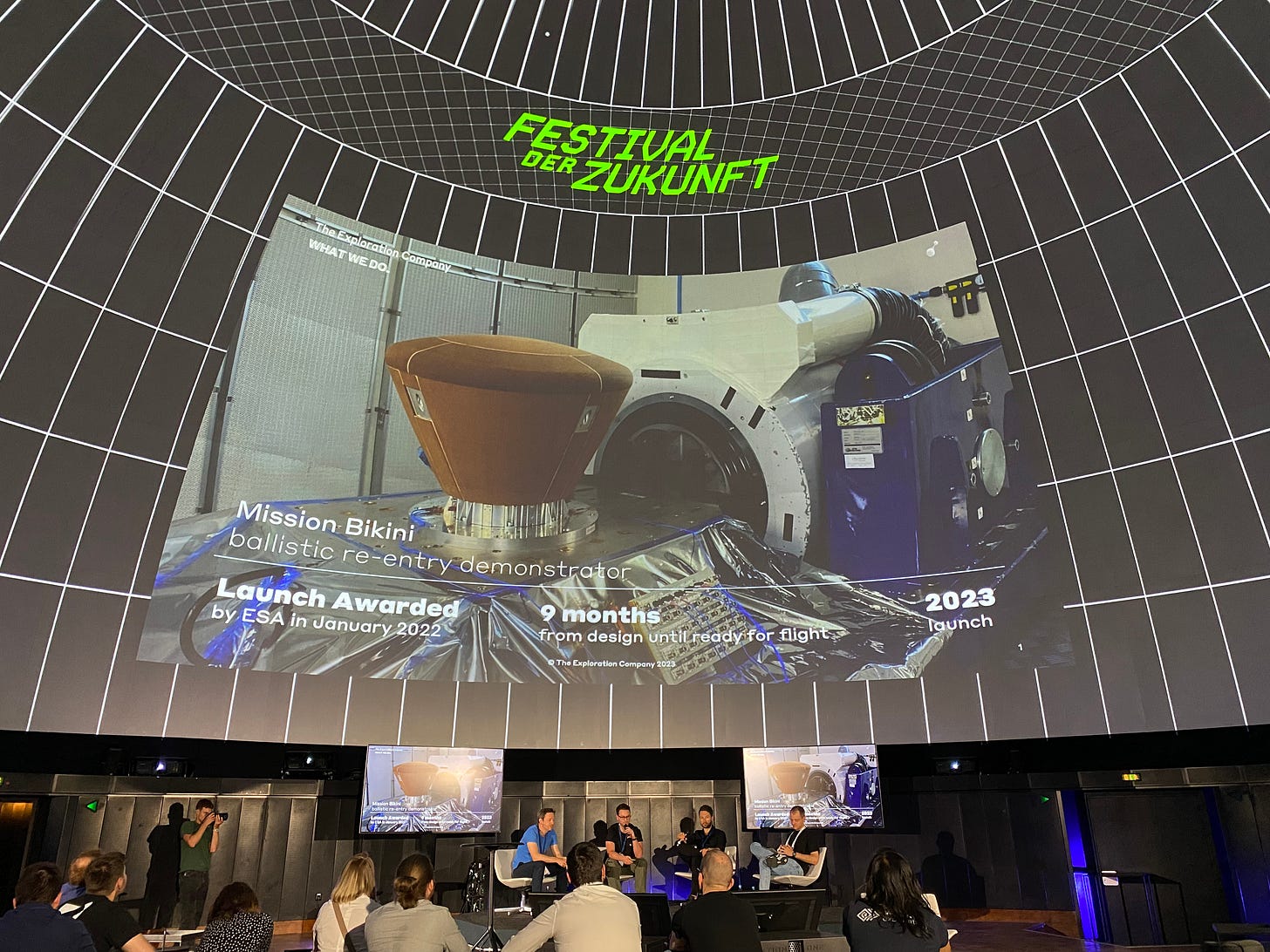Welcome to
! I’m Kyle O'Brien, an early stage deep tech investor — alongside — and community builder based in Paris, France. I write what I see. These days, it’s mostly explorations into various categories of interest including:The Future of Computing
Blockchain Infrastructure (Privacy & Encryption)
Frontier Health
I enjoy taking complex topics and reducing them into accessible articles and top-notch memes. I also throw bangin’ dinner parties for cool people in tech and venture.
The pre-summer festival season has officially begun. For those outside Europe, there tends to be a race to squeeze the last few ounces of work out of people before the August holidays put everything at a standstill (in France, at least). When I say festival, I really mean conference. Yet while describing my experience in Munich last week to friends and family outside the world of deep tech, I’d say it aligned closer to one’s general expectations of a proper festival.
That’s to say, this wasn’t hosted at a stuffy conference hall on the outskirts of town (I’m looking at you, Viva Tech). In fact, it was smack dab in the center of Munich in the night club wing (you read that right) of a science and technology museum. In typical German fashion, it was fitted with a lovely Biergarten/outdoor stage.
Today I’ll share some of my experience, highlight key take-aways and speak to a few panels that caught my eye at the Festival of the Future!
Short but Sweet Version:
Festival of the Future hits a sweet spot in terms of size, quality and (German) edginess (5/5 would recommend)
Regulation is still taboo in Europe — bureaucrats love it (and claim it puts Europe on the map as a result) while founders and investors tend to believe it stymies innovation. Still a lot of work to be done across the aisle
Climate is edging its way into the EU deep tech sphere both directly and indirectly, and it shows.
Space is cool. Not that it was is question, but just a quick reminder! 🚀
Really enjoyed time with partners in Munich — planning to come back soon!
The Future is Cash-Only (and other silly stories)
It’s day one. I arrived late the night before and desperately needed my morning caffeine intake. In the courtyard were a few food/drink trucks where I promptly ordered an iced coffee. Instinctively, I pulled out my card to pay so I could quickly find a bench and inhale my cool beverage in the shade. Cash only said the barista. WTF?! I later discovered this was a quirk of German society and less so the futurists who planned the conference. I don’t think I was the only disappointed (and confused) guest because the next day they were outfitted with a card machine! Thankfully, the nice guys from Space Founders spotted me the €3 and we got on with our day.
Shortly thereafter, my freshly caffeinated brain stumbled into the “dome stage” aka the planetarium where I was treated to some fun visuals. You see, this conference included an artistic slant to it which made for some fun installations, including the one below where an “AI” both demonstrated it’s superior intelligence and comforted us humans by explaining our creative expression, emotions and feelings would help us maintain the upper hand and preserve our humanity.
“AI Think, Therefore AI Am” (installation)
Particularly Poignant Panels
The schedule was jam-packed, but a few panels really stuck with me.
Panel #1: EU Tech & Regulation
I found this compelling not necessarily because of the content (my eyes tend to glaze over the minute I hear regulatory acronyms) but more because of the contrast between the two speakers. One is an influential deep tech leader (and fellow American expat operating in Europe); the other is a bureaucrat from Brussels (his words, not mine). Generally speaking, these two personalities are at odds with one another.
In short, the EU Policy Officer argued that the DMA (Digital Markets Act) is pioneering legislation set to unleash unprecedented regulation on Big Tech giants, thereby giving opportunities to the little guys. The sentiment in the room was a resounding shrug. The main thrust of the legislation is to open data models and algorithms (think Google’s search indexing or YouTube’s recommendation engine) to startups as a way of levelling the playing field. One savvy audience member asked isn’t this looking backwards? search seems like a 2000-2020 problem, now we’re in the age of AI… shouldn’t we be legislating towards the future. To which the bureaucrat responded: this legislation is coming out in the future, therefore it is the future… (womp, womp).
There was certainly some disagreement on the outcomes and impact of this legislation, but Steven was measured, thoughtful and engaged in a productive dialogue with his sparring partner. What is the opposite of a wolf in the hen house? A hen in the wolf house? If not convincing, the bureaucrat was certainly brave.
Panel #2: Food Security & Climate Change
Rand and I don’t have a climate mandate (although some investments are climate positive) nor do we invest much in "food tech” — but this panel caught my eye for a few reasons. Cell-based meat and alternative proteins have been on my radar for some time now and it feels like they’re finally having their consumer acceptance moment. As the cost curve drops so does the “ick factor.” Conversely, the impending demands on society resulting from climate change are becoming more and more apparent. The trend has extended from the meat industry into dairy as well (as evidenced by the panelist from Better Dairy). I’ve even met a startup in France working to cultivate human breast milk for babies (Mumilk). There’s a lot going on this space and it was great to get the perspective of a corporate, a startup operator and a venture investor (my new friend, Marie from Possible Ventures!).
Panel #3: Small Language Models
If you read this newsletter, you are probably familiar with the term Large Language Model (LLM). It’s the technology powering the ChatGPTs of the world through billions (even trillions) of parameters. While the emergent properties are impressive, it’s unclear if bigger is always better. The founder & CEO of Xayn argued that LLMs are the natural first step, but SLMs (small language models) will be purpose built for specific tasks at a lower cost and with more energy efficiency. Refreshing to hear a new perspective on this (and it didn’t hurt that we got to sit outside)!
Panel #4: How to build a spaceship
My first true love (before I knew the term “deep tech”) was outer space. So when I saw a talk titled how to actually build a spaceship, I had to join. The star of the show was undoubtedly the business and marketing lead at The Exploration Company, a startup working to make space exploration affordable, sustainable and open. He walked us through upcoming missions and his counterparts from Dassault and DeltaVision helped unpack the complex supply chain involved in putting together a successful mission.
New Friends
In my experience, conferences tend to be subterfuge for meeting people you’ve been interacting with online for some time. This festival didn’t disappoint. In my new-ish role as a deep tech investor, Munich tends to maintain a center of gravity in the ecosystem. With great science and engineering schools like TUM, a healthy network of early stage investors and long-standing corporate institutions that are responsible for Germany’s engineering prowess.
A very special thanks to the Vsquared team (s/o to Herbie, Tommy & Ferdinand!). Not only were they welcoming local guides but also generously let me use their office for a panel I moderated. Excited for future collaborations!










